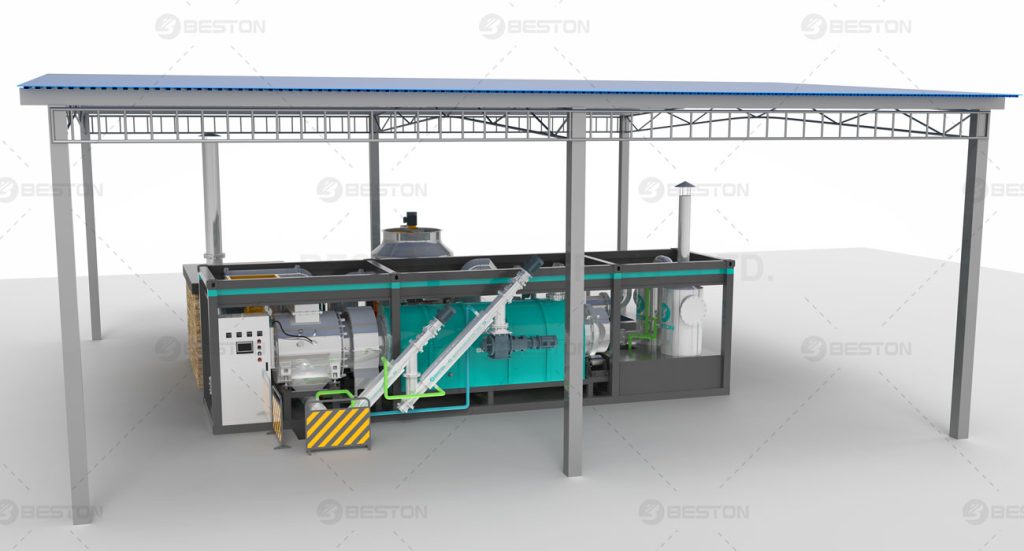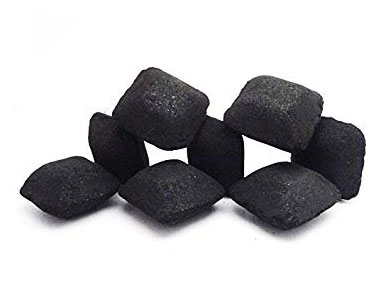A mobile biochar machine is a device designed to produce biochar, a charcoal derived from organic materials such as wood, agricultural waste, and manure. Biochar is often used as a soil amendment to improve soil fertility. The advantages of mobile biochar machines include higher efficiency compared to traditional methods, reduced pollution, and the ability to operate in remote areas without access to electricity. Additionally, these machines can create job opportunities in rural communities. Let Beston Group guide you with further details.

What Kind of Biomass Can Be Used in the Mobile Biochar Machine?
The mobile biochar machine is designed to turn biomass into char. Biomass refers to any organic matter that can be used as fuel, such as wood, agricultural waste, or even sewage sludge. The machine is particularly effective in converting wood into char. Wood is an abundant biomass material and can be sourced sustainably from managed forests. Once converted into char, it serves as a soil amendment to enhance plant growth and water retention. Additionally, char can absorb toxins and hazardous chemicals, making it ideal for environmental cleanup projects. As mobile biochar technology evolves, its applications are likely to expand further.
How to Operate the Mobile Biochar Machine
The mobile biochar machine is a versatile tool that can produce biochar, liquid fertilizer, and compost. It is easy to operate and powered by a diesel engine. To start the machine, simply add water to the tank and turn on the engine. The machine will automatically heat the water to produce steam, which is then used to pyrolyze the biomass, producing biochar.
Add biomass to the tank and turn on the engine to produce liquid fertilizer and compost. The machine will break down the biomass and release nutrients into the water, which can be used to fertilize plants or improve compost quality.
Step-by-Step Operation Guide
Here is a detailed guide to operating your mobile biochar machine:
- Preparation: Gather the biomass materials you intend to convert into biochar. Ensure that the biomass is dry, as wet materials can hinder the pyrolysis process.
- Loading the Machine: Open the biomass feeding inlet and load the biomass materials into the machine’s reactor. Be careful not to overfill the reactor to ensure optimal performance.
- Starting the Machine: Add water to the machine’s tank and start the diesel engine. The engine will heat the water to produce steam, initiating the pyrolysis process.
- Monitoring the Process: Keep an eye on the machine’s temperature and pressure gauges. Adjust the settings as needed to maintain the optimal conditions for biochar production.
- Collecting the Biochar: Once the process is complete, allow the machine to cool down before opening the reactor. Carefully remove the biochar and store it in a dry, cool place.
- Cleaning and Maintenance: After each use, clean the machine thoroughly and inspect it for any signs of wear or damage. Regular maintenance will prolong the life of your mobile biochar machine.
Tips for Maintaining Your Mobile Biochar Machine
Investing in a mobile biochar machine is a smart decision for your future. Here are a few tips to keep your machine running smoothly:
- Inspect your machine regularly for any damage or wear and tear, especially if you live in an area with harsh weather conditions.
- Keep the moving parts of your machine well-lubricated to prevent premature wear and tear.
- Empty the ash bin regularly; depending on your machine model, this may need to be done weekly.
- Store your biochar in a cool, dry place. Wet biochar will be less effective.
- Follow the manufacturer’s maintenance schedule to ensure all components are functioning correctly.
Common Issues and Troubleshooting
Even with proper maintenance, you may encounter some issues with your mobile charcoal making machine. Here are a few common problems and their solutions:
- Engine Won’t Start: Check the fuel level and ensure there is no blockage in the fuel line. Clean the spark plugs and ensure the battery is charged.
- Low Biochar Yield: Ensure the biomass is dry and the machine is operating at the correct temperature. Adjust the feed rate and monitor the process closely.
- Excessive Smoke: Check for any leaks in the reactor and ensure the biomass is not too wet. Adjust the temperature settings to achieve complete pyrolysis.
- Clogged Reactor: Regularly clean the reactor and remove any residual char or ash buildup to maintain optimal performance.

By following these guidelines, you can ensure that your mobile biochar machine operates efficiently and provides years of reliable service.